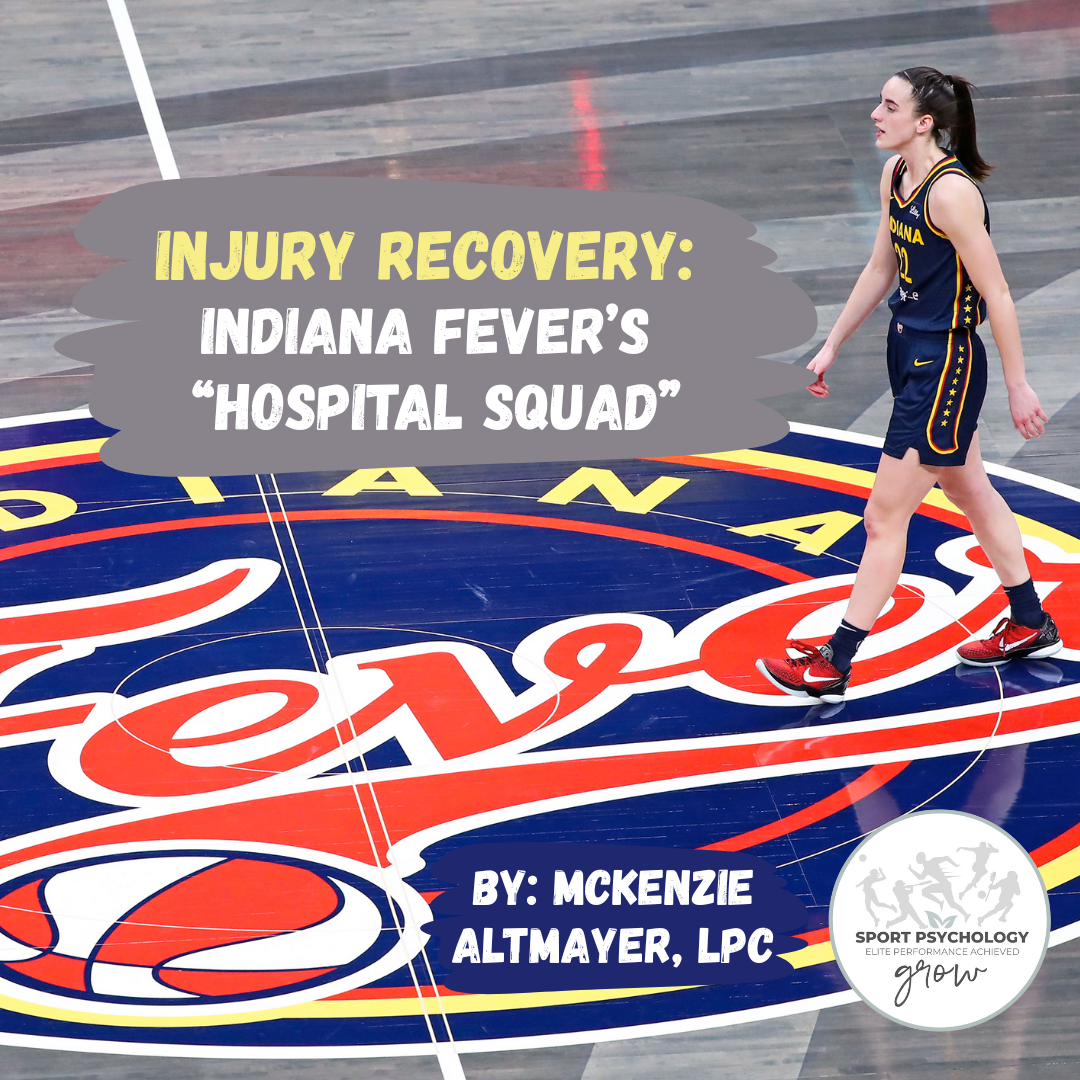


This WNBA season has been uncharacteristically aggressive, which has led to multiple athletes sustaining season-ending injuries. In particular, a team hit the hardest would have to be the Indiana Fever. Throughout the regular season multiple members of the team began to be declared as unavailable for games due to their injuries. Yet,against all odds, this team made it to the playoffs and took the Aces to an overtime run in game 5 in the semi-finals. The Fever is a perfect example of maintaining great locker room culture, rallying together, and taking on new roles in the face of adversity.
Starting in early May, Caitlin Clark was experiencing quad tightness which led to her missing the preseason. On July15th, Clark sustained a further groin injury leading to her missing more games. Then, Sydney Colson and Aari McDonald both sustained season-ending injuries on August 8th (torn ACL and broken foot, respectively). On August 17th, Sophie Cunningham suffered an MCL tear—ending her season as well. On September 4th it was announced that Chloe Bibby would also be out for the season due to a knee injury, and Caitlin Clark would also miss the remainder of the season. That is a total of 5 players who have been ruled out of the season; players who would otherwise be massive contributors to the team. Yet, the Fever have forged ahead and showed extreme resilience and fortitude as they have made this remarkable playoff run.
What is even more impressive is the continued involvement of the Fever players who have sustained these injuries.These women are still present on the sidelines, cheering on their team throughout the playoff run. This group even took to calling themselves the“bench mob” or the “hospital squad.” This shows a lightheartedness that is difficult to achieve amidst the internal, emotional struggle of a season-ending injury. The Indy Star quotes Stephanie White (Fever head coach) stating that these players bring an emotional boost to the team. White also remarks that these women are great communicators for the team, offering advice from the sidelines. Lexi Hull is quoted as well stating that the group “bring energy…light… [and] they’re vocal leaders.”
From a sports psychology perspective, injuries in athletes can create isolation,loss of identity, and a multitude of difficult emotions. According to clinical psychologist Andrew Ahrendt, PhD, common psychological responses to injury include depression, fear and anxiety, lack of motivation, identity crisis, or over confidence in one’s ability to come back too quickly. Noting how difficult injuries can be, and how much emotional turmoil they can create, it’s especially remarkable that the Fever members who have sustained season-ending injuries have been able to shift into new, supporting roles for the team.
Using the Fever “bench mob” as an example, at Grow Sport Psychology we can aid injured athletes in creating new roles for themselves within their team. We see Caitlin Clark, someone who would ideally be leading her team on the court, now being one who is taking on more of a coaching role on the side. By still continuing to attend practices, games, and team events we can help prevent isolation from occurring during the injury process.
Another great tip for injury recovery is setting new goals for oneself that apply to the current situation. Here at Grow, we—as a team of current and former athletes—understand the struggle to stay motivated during an injury. When we compare to our teammates or where we should be, we strip ourselves of any compassion or appreciation for the skills we’re building right now. So we endeavor to help clients remain present, focus on what they can control, and create new skills that can be used once they return to competition. There are so many lessons to be learned through injury; Caitlin Clark sees this and is quoted in her exit interview stating: “I think this is a moment and a season I’ll look back on and be like, this is why I am who I am today… it taught myself how to be a really good leader and how to be a really good teammate.”She continues the statement by sharing how due to her own injury experience,she’ll also be a better resource for others going through injury because she now knows what it’s like.
Injuries are mentally demoralizing and can be negatively impactful in a multitude of ways. The Fever are a wonderful example of still being there to support the team, and likely supporting themselves behind the scenes. At Grow Sport Psychology we can be the support system that builds the individual back up during and post-injury.
By: McKenzie Altmayer, MA, NCC, LPC
To Learn More About Grow Sport Psychology:
Call: 331-457-2020
Email: sports@growwellnessgroup.com
Website: https://growwellnessgroup.com